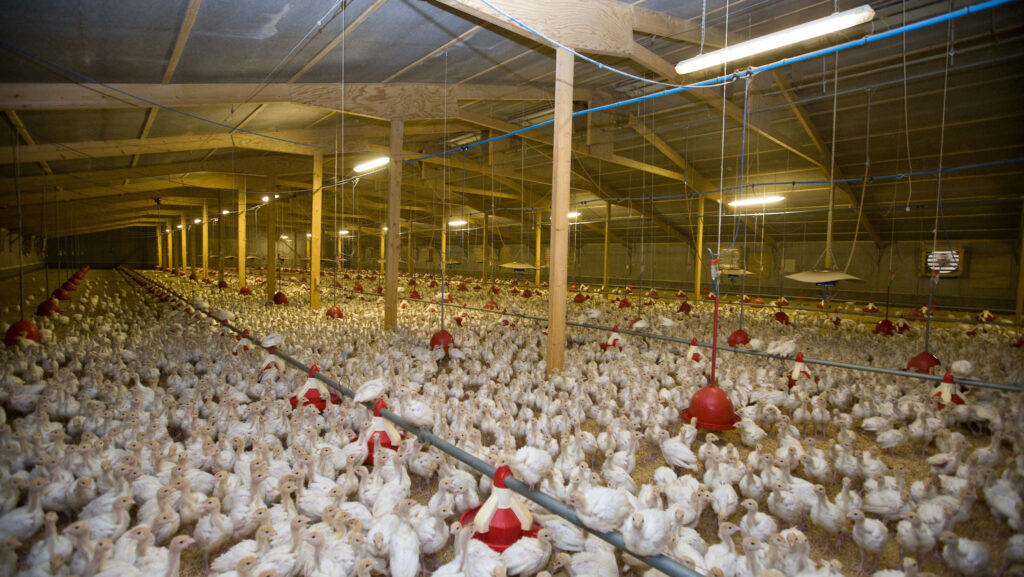Lawyers seek compensation for poultry pollution in Wye catchment
 © Tim Scrivener
© Tim Scrivener Law firm Leigh Day has started the first stage of planned legal action against chicken producer Avara Foods, seeking millions of pounds in compensation for businesses in the River Wye catchment which may have been hit by high levels of water pollution.
The firm has sent a “letter before action” to the company (and to Avara’s 50% shareholder, Cargill plc and its subsidiary Freemans of Newent), claiming their role in driving “industrial scale” poultry production in the area has led to excessive phosphorus in the river, as well as odour, noise and insect pollution.
See also: Badger groups plan legal challenge to latest cull licences
The letter invites them to resolve the dispute before formal court proceedings get under way, but “if a satisfactory response is not received by 20 August 2024, preparations will begin to issue the legal claim in the High Court,” it said.
Excessive manure
Leigh Day says the rapid expansion of poultry production has led to excessive chicken manure being spread on the land, leading to high phosphorous levels in the River Wye.
This has triggered algal blooms, which have cut oxygen supplies to the river and harmed other aquatic life, it says.
“The effect of the pollution has been a massive negative impact on people’s enjoyment of the Wye and on businesses which depend on it thriving,” the letter claims.
It also suggests property values have been impacted, while housebuilders have been unable to secure planning permission near the river due to a “phosphate moratorium”.
The planned action is being funded on a “no win, no fee” basis, but if successful, Leigh Day would deduct a fee of up to 30% of any damages received.
Doubts
But doubts have been expressed about the true contribution of poultry farming to the level of phosphates in the River Wye.
Suggestions of a 60-70% contribution come from a Lancaster University RePhokUs report published in May 2022.
But industry stakeholders say this is based on outdated coefficients, which substantially overestimate the levels of phosphate excretion from broilers.
There is also a dearth of data on the other sources of phosphate pollution, such as industry and sewerage, while the RePhokUs report shows that other livestock contribute far more phosphates than poultry.
‘Misconceived’
A spokesman for Avara described the potential claim as “factually incorrect and fundamentally misconceived”.
“We are proud of our business, providing high quality and affordable chicken and turkey for consumers, and we will vigorously defend our position,” he said.
“Given the ongoing legal process, we will not be offering further comment at this time.”
The company had previously pointed to the long-standing use of phosphate-rich fertiliser by arable farms as another factor, and data showing that the issue of excess phosphorus considerably pre-dates the growth of poultry farms in the Wye catchment.
In 2023, Avara also introduced its “sustainable poultry roadmap”, which involves directing poultry manure from its farms to anaerobic digesters, or shipping it to arable farms outside the Wye catchment.
